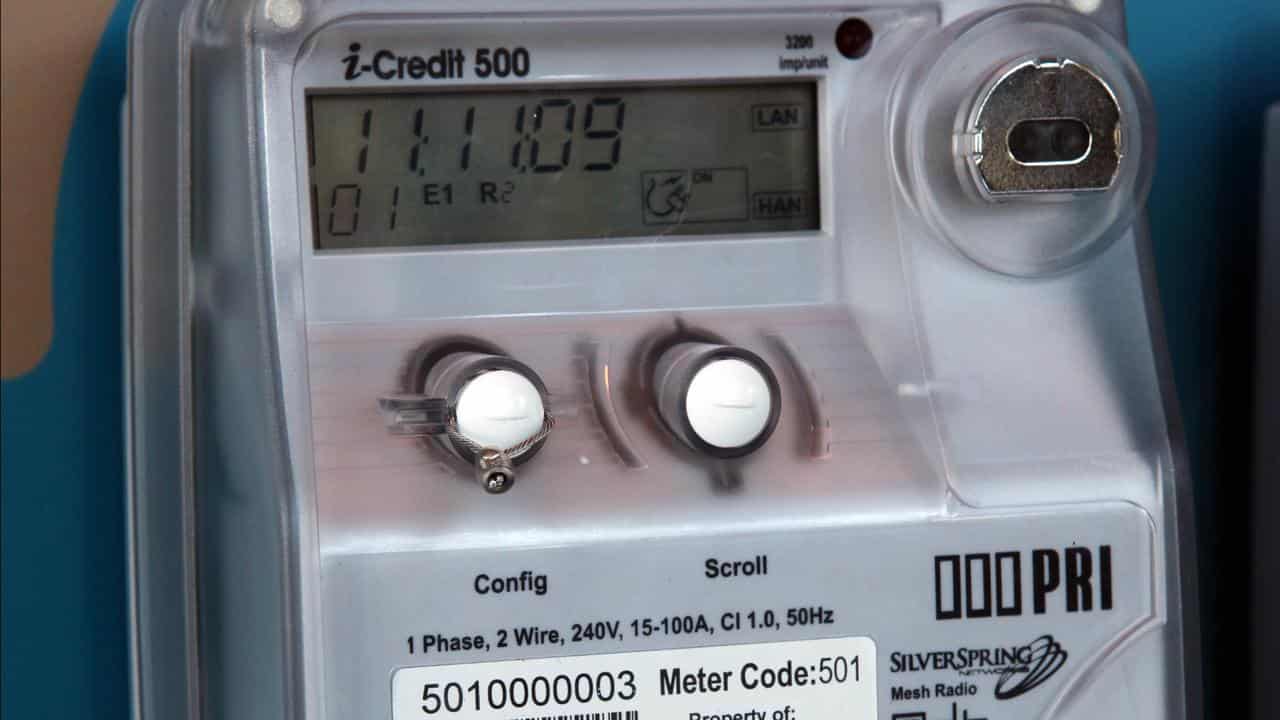
Energy costs could be slashed by plugging in two million smart meters linked to more than 140,000 household devices to create a virtual power plant bigger than a solar farm.
The Australian Renewable Energy Agency (ARENA) on Monday announced $9.75 million for utility services firm Intellihub to co-ordinate 510 megawatts of otherwise scattered consumer energy generation and storage.
Australasian firm Intellihub will manage the flow of information between electricity retailers and household rooftop solar energy systems, hot water units, pool pumps and electric car chargers.
Households can sign up voluntarily to the so-called demand flexibility platform, which energy companies will use to stabilise demand and manage costs.
For example, Australian pools - responsible for about 30 per cent of household energy use - would consume about 2.1 gigawatts of electricity if they were all switched on at once.

Around four million electric hot water heaters in Australia also have a massive impact on demand, and could be timed remotely to cost less and spread the load away from times of peak demand.
Already a world-leader in rooftop solar, Australian homes are expected to have six million systems by 2030.
There will be around 2.4 million electric cars on Australian roads by 2030, with 80 per cent of charging taking place at home, according to the Australian Energy Market Operator.

More than 180,000 Australian homes also have a battery energy storage system and the number of units is expected to increase to more than one million by 2030.
Intellihub estimated a reduction in household energy costs by over a hundred dollars per year for each device enrolled in the project.
Assistant Minister for Energy Jenny McAllister told AAP the platform had huge potential, with studies showing Australia could save up to $18 billion out to 2040 by managing demand flexibility.
Freeing up to 500 megawatts of grid capacity was just a small fraction of what could come from 10 million home devices by 2030.
"Better management of these volunteered household energy devices and appliances can help balance supply and demand, while delivering real impacts on energy prices and provide wider grid stability," Senator McAllister said.
By harnessing the growing fleet of devices, governments aim to reduce demand on the electricity grid at peak or critical times to reduce the overall cost of energy and support more renewables in the system.
"They will work like a large battery energy system, soaking up excess daytime solar energy and avoiding consumption during peak demand periods to reduce stress on the system," Intellihub CEO Wes Ballantine said.
ARENA CEO Darren Miller said without the ability to monitor and control energy flows, these currently inflexible devices create challenges for the grid.
A smarter energy grid, where consumers are at the forefront of the energy transition by plugging in their own resources, means being able to better match supply and demand while also making cost savings, he said.
Intellihub supplies energy retailers nationwide including ActewAGL, AGL, Aurora Energy, EnergyAustralia, Origin Energy, Snowy Hydro's Red Energy and Simply Energy.

